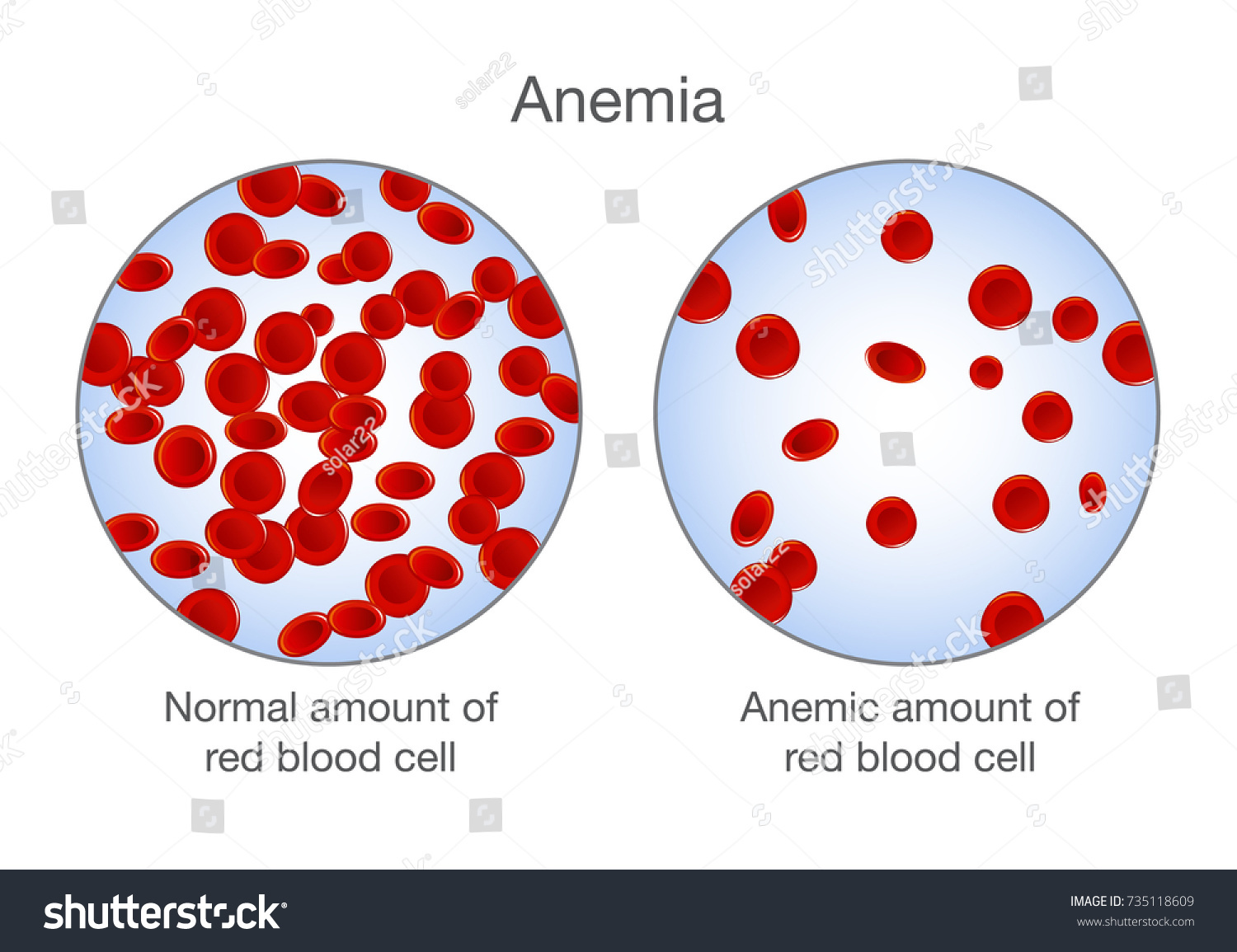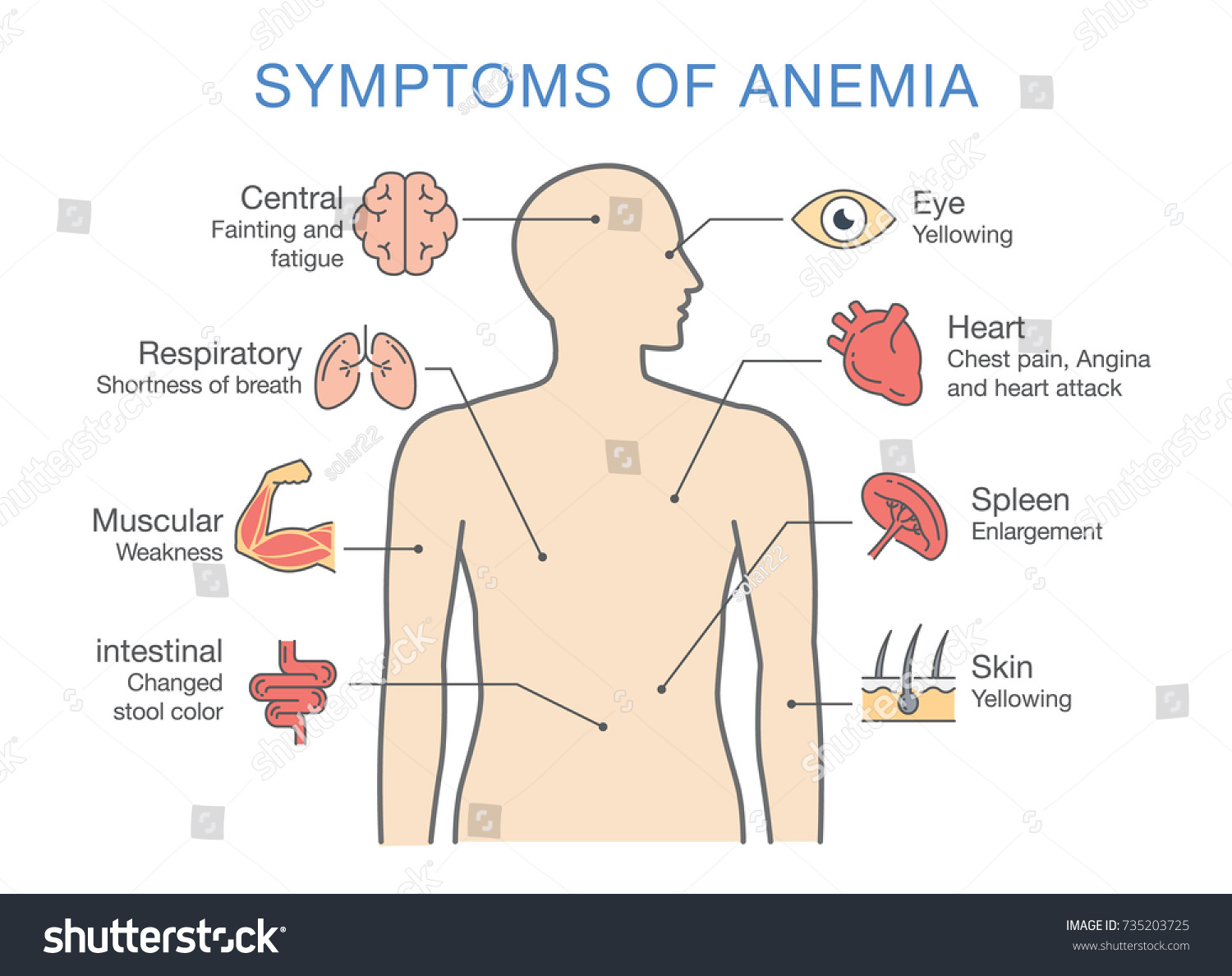Introduction
Anemia is a type of blood disorder by which millions of people are affected worldwide. It is caused due to lack of enough red blood cells or hemoglobin, that are responsible for carrying oxygen from your lungs to your body’s tissues. Many factors can lead to Anemia , such as iron deficiency, chronic diseases, genetic disorders, and certain medications. It is important to diagnose and treat anemia promptly to prevent complications and improve quality of life.
What Is Anemia?
Anemia occurs when the body lacks enough red blood cells or due to their lack functioning . Red blood cells contain hemoglobin, a protein that binds with oxygen and carries it to the body’s tissues. Due to not having enough red blood cells or hemoglobin, it can’t get enough oxygen, and this leads to anemia. If you have anemia, your body won’t get enough oxygen, which can cause fatigue, weakness, and other symptoms.

Blood cell count comparison of normal and anemia caused human
Symptoms
Some common symptoms of anemia include:
- Fatigue and weakness: You may feel tired and weak even after getting enough rest and sleep.
- Shortness of breath: You may feel out of breath or have trouble breathing, especially when you exercise or climb stairs.
- Dizziness and lightheadedness: You may feel dizzy or faint, especially when you stand up too quickly.
- Rapid or irregular heartbeat: Your heart may beat faster or irregularly than usual.
- Pale skin and gums: Your skin and gums may appear pale, especially around the eyes, lips, and nail beds.
- Cold hands and feet: Your hands and feet may feel cold and numb, even in warm weather.
- Headaches: You may experience frequent headaches or migraines.
- Chest pain: You may feel chest pain or tightness, especially during physical activity.

Symptoms occurs due to anemia
Causes of Anemia
Variety of factors can cause anemia including:
- Deficiency of iron: Iron is an essential nutrient that your body needs to produce hemoglobin. Due to lack of enough iron from your diet, you may develop iron-deficiency anemia.
- Vitamin deficiency: Vitamins like vitamin B12 and folate are crucial for the production of red blood cells. Deficiency these vitamins from your diet, may develop vitamin-deficiency anemia.
- Chronic diseases: Chronic diseases like kidney disease, cancer, and HIV/AIDS can affect the production of red blood cells and cause anemia.
- Pregnancy: Pregnant women are at a higher risk of developing anemia due to the increased demand for iron and other nutrients.
Types of anemia
There are several types of anemia, including:
- Anemia with Iron-deficiency anemia: It occurs due to not having enough iron to make hemoglobin. Iron is essential for the production of red blood cells. It is the most common type of anemia
- Vitamin-deficiency anemia: when there is a deficiency of certain vitamins, like vitamin B12 or folate. Thus vitamins are crucial for the production of red blood cells.
- Aplastic anemia: when the bone marrow does not produce enough red blood cells, white blood cells, and platelets.
- Sickle cell anemia: This is an inherited form of anemia in which the red blood cells are abnormally shaped and do not carry oxygen properly.
- Thalassemia: This is an inherited form of anemia that affects the production of hemoglobin in the body.
- Pernicious anemia: The body is unable to absorb vitamin B12 properly. This can be caused by an autoimmune disorder or damage to the stomach lining.
- Hemolytic anemia: In this red blood cells are destroyed faster than they can be produced. This can be caused by an autoimmune disorder or an inherited condition.
Treatment Options for Anemia
Some common treatment options for anemia include:
- Iron supplements: If you have iron-deficiency anemia, your doctor may prescribe iron supplements helps to maintain the iron levels.
- Vitamin supplements: If you have vitamin-deficiency anemia, your doctor may prescribe vitamin supplements to increase your vitamin levels.
- Blood transfusions: In severe cases of anemia, you may need a blood transfusion to replace the lost red blood cells.
- Medications: Your doctor may prescribe medications to treat the underlying condition that is causing your anemia.
Prevention of Anemia
Anemia can be prevented by many ways, including:
- Eating a balanced diet: Make sure you eat a diet rich in iron, vitamin B12, and folate.
- Taking supplements: If you’re at risk of developing anemia, consider taking iron or vitamin supplements.
- Managing chronic diseases: If you have a chronic disease, work with your doctor to manage it effectively.
- Getting regular check-ups: Regular blood tests can help detect anemia early and prevent it from getting worse.
Summary
Anemia is a disorder that can cause a range of symptoms, including fatigue, weakness, and shortness of breath. It is occurs due to a low red blood cell count or insufficient hemoglobin in the blood. Treatment options depend on the underlying cause of anemia, and prevention strategies include eating a balanced diet, taking supplements, managing chronic diseases, and getting regular check-ups.
Frequently Asked Questions
1. What is the effect of anemia on newborns and children?
Iron deficiency and subsequent anemia in newborns and children can cause cognitive and psychomotor development delays.
2. Can anemia be cured?
Yes, anemia can be cured in most cases. Treatment options relies on the underlying cause of anemia this may include, vitamin supplements, iron supplements, blood transfusions, and medications.
3. Who is at risk of developing anemia?
Anyone can develop anemia, but certain factors may increase your risk, such as a poor diet, chronic diseases, pregnancy, and family history of anemia.